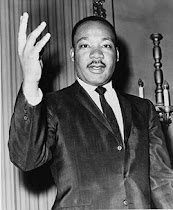Later that day, Hubby checked out the alarm to make sure it was working properly (it was) and went around the house checking our CO levels. They were quite high in the basement and bouncing up and down in the other areas of the house. That night we called a good friend, my dad, who works in the heating and cooling field. After answering several questions and having Hubby try a few things, he determined that he needed to come over immediately. Together they pulled the entire boiler apart and discovered that it was extremely blocked up. Apparently it was only ventilating at about 25% of what it should be - which means the rest was going you know where - INTO THE HOUSE!
Hubby and my dad stayed up until about midnight cleaning it out and making sure all was running smoothly. Praise the Lord for my dad who knows about this kind of stuff and was able and willing to come out in the middle of the night like that. The bad thing is, I had no clue that the boiler could even get blocked that way and cause those sort of problems. I thought CO problems were issues for older homes. Our house is only 11 years old. I figured we had several years before we had to worry about such things.
This is very scary because you can’t see or smell carbon monoxide, but at high levels it can kill a person in minutes. Carbon monoxide (CO) is produced whenever any fuel such as gas, oil, kerosene, wood, or charcoal is burned. If appliances that burn fuel are not working properly or are used incorrectly, dangerous levels of CO can result. Hundreds of people die accidentally every year from CO poisoning caused by malfunctioning or improperly used fuel-burning appliances. Even more die from CO produced by idling cars. Fetuses, infants, elderly people, and people with anemia or with a history of heart or respiratory disease can be especially susceptible.
Here are some tips for making sure you stay safe this winter heating season...
- Have your fuel-burning appliances -- including oil and gas furnaces, gas water heaters, gas ranges and ovens, gas dryers, gas or kerosene space heaters, fireplaces, and wood stoves -- inspected by a trained professional at the beginning of every heating season.
- Make certain that the flues and chimneys are connected, in good condition, and not blocked.
- Choose appliances that vent their fumes to the outside whenever possible, have them properly installed, and maintain them according to manufacturers’ instructions.
- Read and follow all of the instructions that accompany any fuel-burning device. If you cannot avoid using an unvented gas or kerosene space heater, carefully follow the cautions that come with the device. Use the proper fuel and keep doors to the rest of the house open. Crack a window to ensure enough air for ventilation and proper fuel-burning.
- Call the Consumer Product Safety Commission (1-800-638-2772) at http://www.cpsc.gov/ for more information on how to reduce your risks from CO and other combustion gases and particles.
- Never idle the car in a garage -- even if the garage door to the outside is open. Fumes can build up very quickly in the garage and living area of your home.
- Do not use a gas oven to heat your home, even for a short time.
- Never use a charcoal grill indoors -- even in a fireplace.
- Do not sleep in any room with an unvented gas or kerosene space heater.
- Never use any gasoline-powered engines (mowers, weed trimmers, snow blowers, chain saws, small engines or generators) in enclosed spaces.
- Do not ignore symptoms, particularly if more than one person is feeling them. You could lose consciousness and die if you do nothing.
If the CO detector alarm does go off:
- Make sure it is your CO detector and not your smoke detector.
- Check to see if any member of the household is experiencing symptoms of poisoning.
- If they are, get them out of the house immediately and seek medical attention. Tell the doctor that you suspect CO poisoning.
- If no one is feeling symptoms, ventilate the home with fresh air, turn off all potential sources of CO -- your oil or gas furnace, gas water heater, gas range and oven, gas dryer, gas or kerosene space heater and any vehicle or small engine.
- Have a qualified technician inspect your fuel-burning appliances and chimneys to make sure they are operating correctly and that there is nothing blocking the fumes from being vented out of the house.
Right now I am praising God for keeping us safe through this little scare and for blessing us with family who could help us out in a pinch and I am praying that you have a safe winter!!!



















Praise the Lord that you guys were safe.
ReplyDeleteOMG, that is scary! I am glad that you are all okay! Thank you for posing this, b/c it confirms for me that we need to start using our carbon monoxide detector. (It just needs batteries and to be plugged in.) That will go on the "to do" list for this week.
ReplyDelete